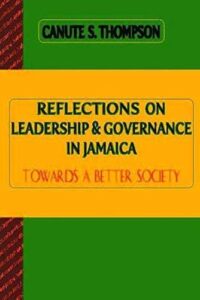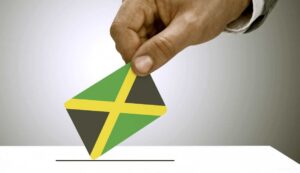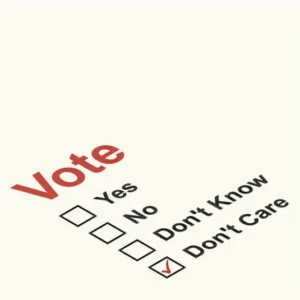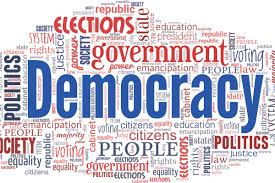
I am on record as being a supporter of mandatory voting as a feature of Jamaica’s democracy. I make the case in my 2018 book, Leadership and Governance in Jamaica: Towards a Better Society. My argument was made, in part, in the context of a strategy to weaken the hold of political garrisons on the Jamaican electoral system.

Jamaicans will go to the polls in a matter of weeks. Turnout is expected to be higher than the abysmal 37% experienced in 2020. Turnout in Jamaican elections has been falling over the last ten general elections (1980 – 2020) as shown in the table below:

Voter Turnout in Jamaican General Elections 1980 – 2020[i]
| Year | Voter Turnout | Percentage Point Change from Previous Election |
| 1980 | 86.91% | – |
| 1983[ii] | 29.58% | n/a |
| 1989[iii] | 78.38% | – 8.53% |
| 1993 | 60.28% | -18.10% |
| 1997 | 65.22% | + 4.94% |
| 2002 | 59.04% | -6.18% |
| 2007 | 61.46% | +2.42% |
| 2011 | 53.17% | -8.29% |
| 2016 | 48.37% | -4.8% |
| 2020 | 37.85% | -10.52% |
The table shows that while two elections saw increases in turnout, the overall picture is one of general decline. In the Parish Council elections, the picture is similar over the last five elections (2003, 2007, 2012, 2016, and 2024). In 2003, the turnout was 40.09%, but fell to 37.92% in 2007, falling further to 34.73% in 2012, with 2016 and 2020 both showing turnouts of about 30%[iv].
One important question which arises from this picture is whether this decline in citizens’ participation represents a threat to the country’s democracy. Without a doubt, low voter turnout reflects citizens’ apathy, cynicism, and indifference. There are several studies which find that low voter turnout adversely affects democracy, and so the issue becomes, “what can countries do to ignite citizens’ interest in voting?” I will address this issue later.

One important question which arises from this picture is whether this decline in citizens’ participation represents a threat to the country’s democracy. Without a doubt, low voter turnout reflects citizens’ apathy, cynicism, and indifference.
Risks posed to democracy by low voter turnout
There are several risks that a democracy faces when there is low voter turnout. It bothers me that so many members of the intelligentsia (college and university-trained citizens and those who occupy middle and senior management positions in government and the private sector) do not bother to vote. Some even pour scorn on the idea of voting speaking of it as some kind of dirty activity which is beneath them and not worthy of their time. The disdain for voting and scorning it as something beneath one’s place in society is, in my view the greatest threat to democracy. How is this so? When members of the middle class withdraw, and leave voting to others, who by virtue of their socio-economic status are heavily reliant on rewards for voting, then vote-buying becomes more prevalent, and democracy can be easily hijacked by those with more money.
There are several risks that a democracy faces when there is low voter turnout. It bothers me that so many members of the intelligentsia (college and university-trained citizens and those who occupy middle and senior management positions in government and the private sector) do not bother to vote.

When members of the middle class withdraw, and leave voting to others, who by virtue of their socio-economic status are heavily reliant on rewards for voting, then vote-buying becomes more prevalent, and democracy can be easily hijacked by those with more money.
Advantages to democracy when there is high voter turnout
There are several advantages to a democracy when citizens vote in large numbers. A September 16, 2024, analysis by the Demstore Institute highlights several benefits of a high voter turnout including:
- ensuring that a more diverse set of voices and perspectives are considered when policy decisions are to be made.
- signaling to elected officials that a larger group of citizens will likely pay close attention to their policy decisions.
- allowing for a strong mandate which gives greater credibility to the actions of elected officials and greater legitimacy to their actions and builds trust in the democratic process.
- giving citizens greater influence on policy decisions.
Given these advantages to high voter turnout, then it behoves the leadership of countries to implement measures to increase voter turnout.
Strategies for improving voter turnout
There are at least twenty-two countries (including Australia, Belgium, Bolivia, Costa Rica, Egypt, Greece, Luxembourg, and Mexico) which have mandatory voting laws. In at least once case, Australia, citizens in the Diaspora can vote and if they do not, they can lose the right to vote. Naturally, in those countries with mandatory voting laws, voter turnout is high, typically in the high 80s to the 90s.
The first strategy I would recommend for attaining higher voter turnout is that voting be mandated by law. Under this law, all citizens above a certain age, and who are not in prison or experiencing severe health conditions which affect their mental capacities, be required to vote. The refusal to vote should some significant consequences. Australia, Belgium, and Peru impose fines for failure to vote.
But there are countries which experience high voter turnout that do not have mandatory voting laws. These countries include Ethiopia, Laos, Rwanda, and Uruguay. In general elections held in Ethiopia and Laos in 2021 and Rwanda and Uruguay in 2024, the average voter turnout across the four countries was 94.85%, with the lowest being Uruguay at 89.52% and the highest being Rwanda at 98.2%.
An American-based entity, The Institute for Responsive Government, in a March 15, 2024, paper authored by Tova Wany, examines a range of strategies that countries with low voter turnout can use to stimulate high levels of turnout. The paper is titled “What Other Countries Can Teach us about Turnout”.
The first strategy listed by the Institute is mandatory voting. Other strategies include:
- Changing the mindset and attitude of citizens toward voting. This will involve teaching the importance of voting in primary and secondary schools; expanding programmes such as those which allow students to be symbolically elected as mayors to include students being symbolic councillors and having them participate in municipal discussions from time to time.
- Holding elections concurrently, thus local and general elections are held on the same day and on the same ballot.
- Including issues of public interest on the ballot; for example, in Jamaica’s case – at this time, the issue of separation from the monarch could be on the ballot, so is whether the Caribbean Court of Justice, term limits for the Prime Minister and Members of Parliament, fixed election dates, impeachment, etc.
- Making it easy to vote, so voting online – without having to leave home, allowing for early voting (perhaps a month before election day – which would mean having a fixed election date)
Conclusion
While the foregoing recommended solutions to low voter turnout will not affect Jamaica’s 2025 General Elections, I am urging whichever party that forms the next government to give them serious consideration. In giving consideration to what strategies may be useful to increase voter turnout, study tours in countries such as Ethiopia, Laos, Rwanda, and Uruguay should be done to learn about what explains their high levels of voter turnout which are experienced without mandatory voting laws. Other Caribbean countries are encouraged to consider these strategies in seeking to increase voter turnout and should equally pursue study tours in countries that have high voter turnout.
[i] Source: The Electoral Commission of Jamaica
[ii] The PNP did not contest this election, thus this level of turnout should not be regarded as a reflection of voter interest.
[iii] The comparison is with 1980.
[iv] Source: The Electoral Commission of Jamaica
References
Porter. (2024, September 16). Why voter turnout is critical for democracy. Demstore. https://demstore.com/why-voter-turnout-is-critical-for-democracy
Wang, T. (2024, March 15). What other countries can teach us about turnout. Institute for Responsive Government. https://responsivegov.org/research/what-other-countries-can-teach-us-about-turnout/
Canute Thompson is Professor of Educational Policy, Planning and Leadership, Pro Vice-Chancellor – Undergraduate Studies and Director of the Caribbean Centre for Educational Planning at The University of the West Indies, Mona Campus, a social activist, and author of eight books and twenty journal articles.
Professor Thompson has earned several awards. Among them, are eight UWI Mona Campus Principal’s Awards – two for Best Publication (Article Category) in 2019 and in 2020 for his book, ‘Reimagining Educational Leadership in the Caribbean’; three for Most Outstanding Researcher (2020, 2021, and 2024); two in 2023 on behalf of the CCEP – for Research Activity generating the most funds and Research with the most Development Impact, and one in 2024 for Research Activity generating the most funds. In 2022 he was awarded a bronze medal in the Independent Publishers’ Book Awards, for his 2020 book, Education and Development: Policy Imperatives for Jamaica and the Caribbean.
